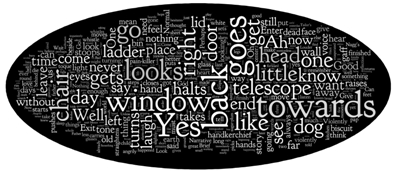Still finishing up some non-blog writing that's exhausting all my blogging energy - but, it's not exhausting all my time-wasting energy, which is inexhaustible. So it is that I stumbled across the following.
It began with a post from the inexhaustible Patty of Oboeinsight. She
linked to birthday boy Mitch Miller (97 today!) - I followed, curious about what those Sing-Along-with-Mitch moments actually looked like. It all
seemed about right: kitschy, bad clothes, goofy smiles, Bob from Sesame Street. For reasons that I can't even explain, I clicked over to another Mitch moment and, in the middle (about 1 minute in) of the barbershoppy
Heart of My Heart, I hear Mitch introduce his guests: 1) Rosemary Clooney (yeah, that seems about right), 2) Bob McGrath (yeah, I'd heard he'd started off as one of the Miller gang), 3) Irene Cara (a little new wave for Mitch, but OK), and 4) virtuoso violinist, Mark Kaplan. !?!?! That last one surprised me, although here's the odd part. Moments before I'd Wikipediad Mitch Miller and discovered that he'd conducted a well-regarded Gerswhin
recording featuring the pianist David Golub. I knew I'd heard of David Golub somewhere, but couldn't place it until Google reminded me of the Golub/Kaplan/Carr trio (great trio/bad name). I have several of their recordings, I used to accompany students of cellist Colin Carr, and of course the violinist is Mark Kaplan, Mitch's singalong guest.

Mark Kaplan is a fantastic violinist who's had one of those big, but not quite really big careers. I actually heard him play all the unaccompanied Bach live in two recitals about twenty years ago, and I have his excellent
Stravinsky/Berg concerto CD. Anyway, even though I've since seen that he recorded at least one
concerto album with Mitch Miller on the podium, it still seemed odd for him to be a guest. The best part, though, is that at the end of the
Heart of My Heart, you can see Kaplan (decked out in full dress tails) singing and swaying along. In fact, if you go back to Patty's link and watch the very end, you can also see Kaplan marching along, Strad in hand, singing "Be Kind to Your Fine Feathered Friends." Sadly, I can't find a way to figure out what Kaplan played (or sung!) on the show, or whether they had a way for viewers to follow his bouncing bow. Also, as far as I can tell, this was from a 1981 broadcast, not the show's primary run from 1961-1964.
It's quite possible that I'm the only one in the universe who finds this sort of thing amusing, but that's the beauty of the long tailed internet. Even with hundreds of cable channels, I'll probably never get the "Great Moments in Awkward TV Appearances by Classical Musicians" show that I'd like, but this'll do.
P.S. That
Mitch Miller has had some career: played in Gershwin's orchestra, played for Orson Welles'
War of the Worlds, recorded oboe concertos, turned down Elvis Presley, ticked off Frank Sinatra, made people sing in front of their TVs, conducted classical orchestras, all while sporting a hip Van Dyke, even when surrounded by polyester.






